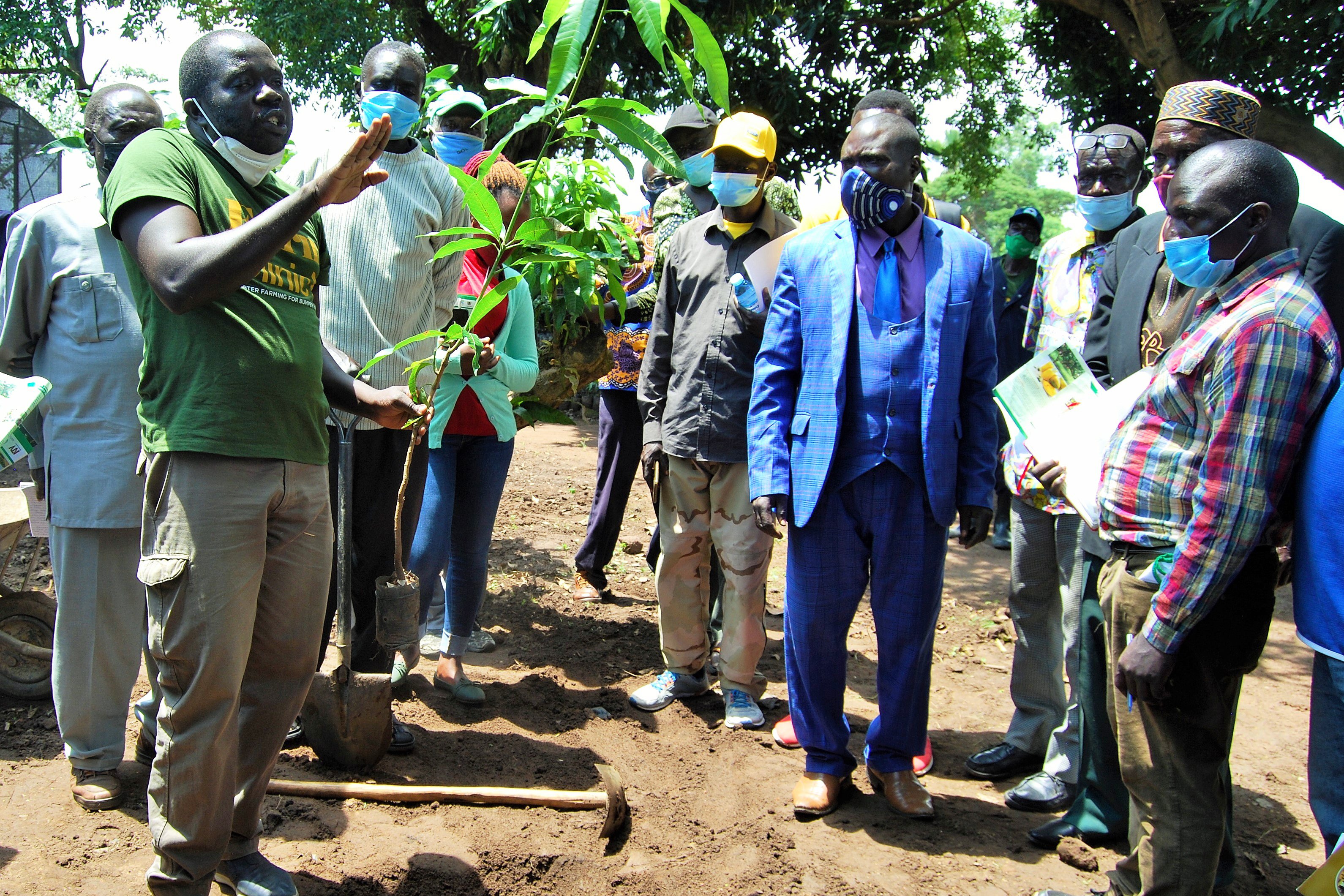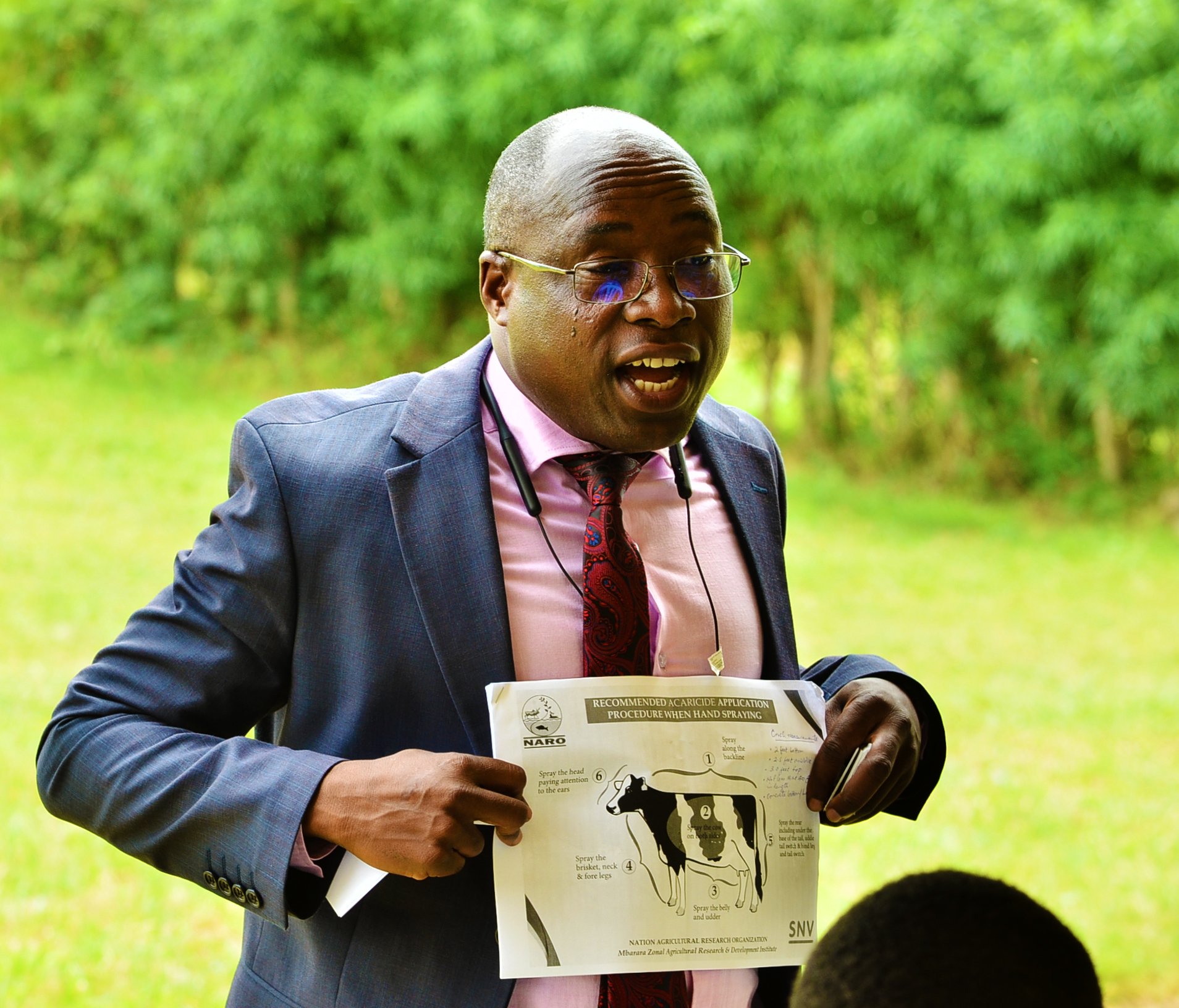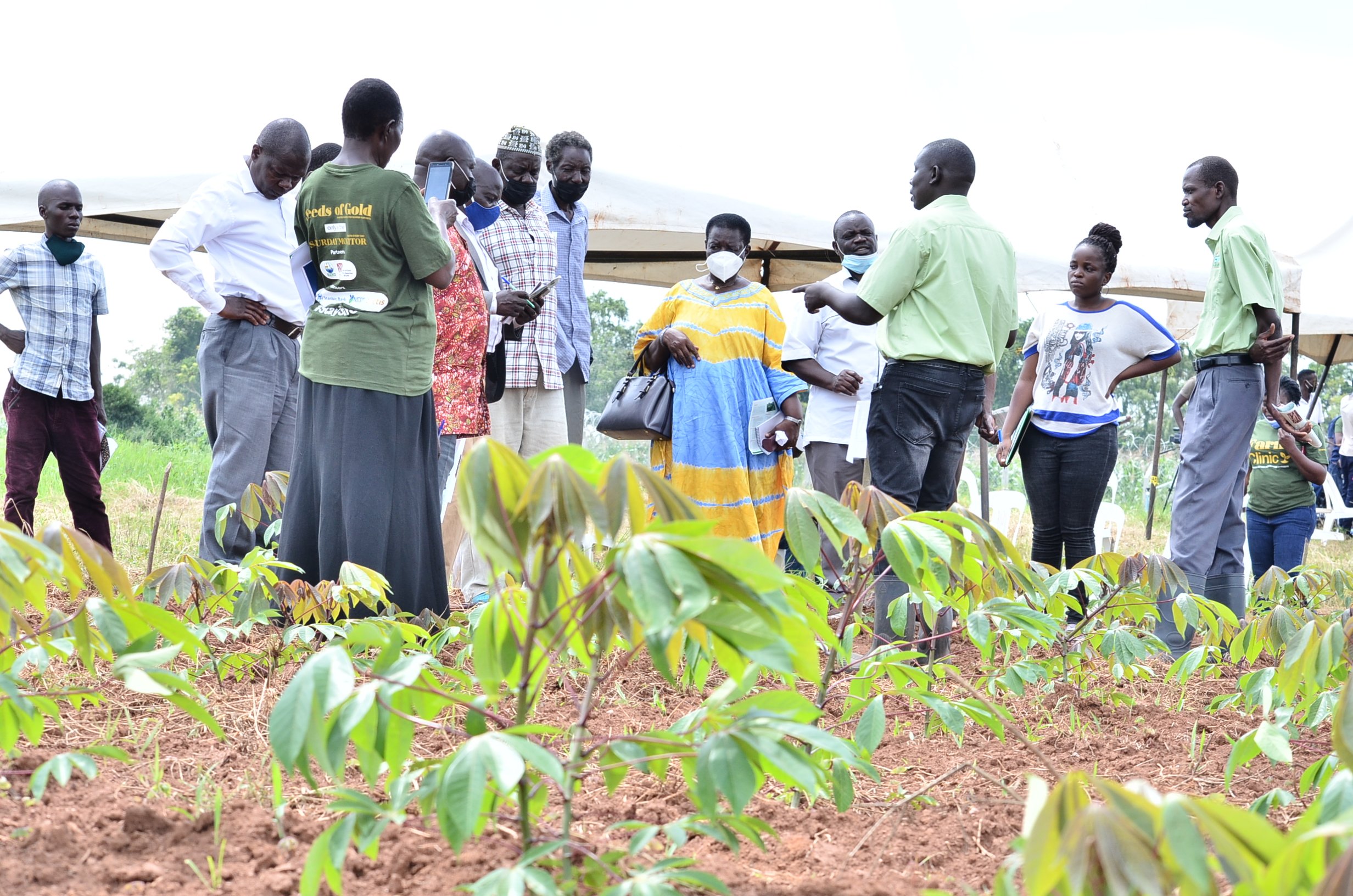Prime
Farmers to aquire new skills at the farm clinic staged in Arua today

Farmers will this morning learn how to graft different types of mangoes during the Seeds of Gold Farm Clinic. Photo/Felix Warom Okello
What you need to know:
- In class Alex Katwiremu gives simple illustrations of such activities as planting seeds, how to pot seedlings, and how to dig and space gallows but most of the practical teaching and learning takes place in the school garden.
Agricultural enthusiasts are gearing up for an enriching experience as the Seeds of Gold Farm Clinic is held today at the Abi Zonal Agricultural Research and Development Institute (AbiZardi) in Arua.
This event promises to be an exceptional opportunity for farmers to delve into modern farming techniques and gain insights from experts in the field.
The Farm Clinic, organised by Seeds of Gold in collaboration with NTV, the National Agricultural Research Organisation (Naro), and the Daily Monitor, has become a beacon of knowledge-sharing and agricultural advancement over the years.
Following successful previous editions in Mbarara and Mukono, the whole day event in Arua is expected to continue the tradition of empowering farmers with practical knowledge and innovative strategies in climate-smart farming practices.
The farm clinic will focus on five key agricultural enterprises: cassava, dairy, fish farming, rice, and soybean. These enterprises have been carefully selected to provide a comprehensive understanding of diverse farming practices, enabling attendees to explore multiple avenues for boosting their agricultural productivity.

Joram Rwahire, a trainer in apiculture explains to farmers the modern methods of harvesting honey. Photo/Felix Warom Okello
The Seeds of Gold farm clinic enjoys the support of prominent sponsors, including the Bank of Uganda, Stanbic Bank, Heifer International, and Zoetis, among others.
Cassava
Cassava, a versatile and hardy crop, has long been a cornerstone of agriculture in northern Uganda. Its adaptability to various soil types and climates, along with its ability to thrive in challenging conditions, has made it a vital component of food security and economic sustainability in the region.
Northern Ugandan farmers have been harnessing the potential of cassava to improve livelihoods, ensure food availability, and contribute to the local economy.
But the area has faced its share of agricultural challenges, including fluctuating weather patterns, pests, and diseases. Cassava has emerged as a resilient solution, offering a dependable source of sustenance even in adverse conditions.
Its deep-rooted nature helps the plant withstand droughts, while its ability to grow in poor soils reduces the need for extensive soil improvement. This resilience has positioned cassava as a crucial crop during times of climate uncertainty.
Cassava is rich in carbohydrates, making it a valuable source of energy for the local population. The crop provides a steady source of calories, which is especially important in regions where access to diverse food options may be limited.
Beyond subsistence, cassava farming offers income-generating opportunities for farmers. The crop can be processed into various products, such as cassava flour, starch, and even alcoholic beverages. These value-added products create avenues for entrepreneurship and economic diversification.
As market demand for cassava-based products increases, farmers in Uganda have the potential to improve their income and contribute to local economic growth.
Modern agricultural practices are influencing cassava farming in Northern Uganda. Innovations in planting techniques, disease-resistant varieties, and post-harvest processing have elevated the crop’s potential.
Naro is collaborating to introduce best practices and share knowledge, further enhancing cassava’s role in sustainable agriculture.
While cassava offers numerous benefits, challenges persist. Pests like cassava brown streak disease and cassava mosaic disease can affect yields.
Adequate pest management strategies and disease-resistant varieties are essential to mitigate these challenges. Furthermore, market access and value chain development require attention to ensure that farmers can derive maximum benefit from their efforts.
Dairy farming
Studying dairy farming holds significant benefits for farmers in northern Uganda. As the region’s dairy sector gains momentum, acquiring knowledge and skills related to dairy farming can empower farmers to seize opportunities, enhance their livelihoods, and contribute to agricultural sustainability.
Through studying dairy farming techniques, farmers can learn how to maximise milk production, improve the quality of dairy products, and explore value-added opportunities. This can lead to increased revenue and economic empowerment for farming households.
There is also a growing demand for dairy products, both locally and regionally. By studying dairy farming practices, farmers can align their production with market demands. Learning about product processing, packaging, and value addition can open doors to various market opportunities.
There will also be emphasis on climate resilience. Dairy farming, when practiced using climate-smart techniques, can contribute to climate resilience.
Studying sustainable practices such as efficient water use, feed management, and livestock housing can help farmers adapt to changing climate conditions.
Fish farming
As the farm clinic approaches, seize the opportunity to learn about fish farming and gain the skills needed to embark on a successful aquaculture journey.
The farm clinic is the perfect opportunity to immerse yourself in the world of aquaculture and gain practical knowledge about fish farming.
The farm clinic brings together experts in the field of fish farming. Farmers will have the chance to learn directly from experienced aquaculturists who can share valuable insights, best practices, and real-world experiences.
Farmers also have the opportunity to learn about fish species that thrive in the region, optimal pond design for local environments, and techniques to address challenges specific to the area.
The farm clinic will cover a range of topics essential for successful fish farming, including water quality management, feed formulation, disease prevention, and harvesting techniques.
Whether you are a beginner or have some experience, you will find valuable information to enhance your skills.
Rice farming
Attending the farm clinic sessions on rice farming offers an excellent opportunity to gain practical skills, learn from experts, and connect with a community of rice enthusiasts.
You will learn about different rice varieties suitable for your region, their growth characteristics, resistance to pests and diseases, and yield potential. Understanding varietal options is crucial for making informed decisions when planning a rice farm.
Attending the farm clinic allows you to connect with fellow rice farmers, experts, and industry professionals.
Networking provides a platform for knowledge exchange, sharing experiences, and building relationships within the agricultural community.
Participants often receive resource materials, guides, and handouts that serve as references as you implement what you’ve learned on your rice farm.
Soybean farming
If you are interested in learning about soybean cultivation and its potential benefits, attending the Farm Clinic can offer you a wealth of knowledge and practical insights.
The soybean farming sessions will be led by experts covering a wide range of topics, from selecting the right soybean varieties to planting techniques and post-harvest handling.
You will learn about the different soybean varieties available, their growth characteristics, disease resistance, and suitability for your specific climate and soil conditions.
The sessions are also expected to cover sustainable practices, such as cover cropping, crop rotation, and soil conservation techniques, that contribute to long-term agricultural sustainability.

Angella Kyobutungi, a crop technician at Ngetta Zardi explains the mechanics of getting the best out of cassava growing. Photo/George Katongole
Cassava agronomy
Cassava is one of the most important crops in the world; it is widely cultivated in East and West Africa with Nigeria leading.
Cassava production is not really technical; it is a capital intensive investment that requires little of your time, all you need is to plant and let nature take its course.
Unlike other crops, cassava is a hardy crop that tolerates virtually all types of soil and climatic condition but commonly grown in the tropics; it can withstand drought and it matures within nine to 10 months.
To make a cassava farm successful, there are several agronomic practices a farmer must adopt.
These practices enhance the soil conditions and provide a favourable condition for the growth from planting to harvest.
Land preparation is very crucial and farmers are required to use proper land preparation method.
There are different types of land preparation method but the most beneficial and widely accepted is the conventional method which involves the use of a plough and a harrow.
The harrow is used to smoothen the land and making it free from weeds and other contaminants, thus, making it suitable for planting. It is also good to use herbicide to clear the weed and dig a hole where the cuttings will be planted.
Farmers are advised to avoid swampy places for growing cassava because it will cause rotting of the tubers.
It is important to buy clean seedlings free from diseases. It is the reason farmers will have to adopt the mandiplus technology where cassava stems are cut and coated with a chemical which will preserve it from disease infection as well as boost germination and growth vigour.
Planting cassava stems requires a cautious approach; stems are planted in a slanting orientation of about 45°and not erect.
The stem contains nodes; these nodes are the growing point of the cassava where new cassava shoot comes up. A stem cutting must have at least five nodes but with mandiplus technology even one node is appropriate.
Cassava stems should be planted early in the morning or late in the evening to prevent evaporation and evapotranspiration. Spacing is very important; the space between plants is the feeding area of the plants; cassava plant requires a spacing of 1m by 1m to ensure good yield.




